A mysterious event invitation showed up in my Facebook feed a little while back.
“Secret Christmas / Vente Très Très Privée Mode et Beauté” (“Very, Very Private Fashion and Beauty Sale”), it announced, presumably so exclusive that just one “very” wouldn’t do.
The invitation went on to reveal that somebody named Laurence would be welcoming shoppers into her cozy Paris apartment that Saturday, enticing invitees with the promise of treats, holiday fashions, and personalized beauty advice.
“If you wish to participate, email us so we can send you the address and door code for this secret rendez-vous”, the invitation instructed, stopping just short of adding, “Your mission, should you choose to accept it…”
The pre-adolescent Nancy Drew fan in me was intrigued.
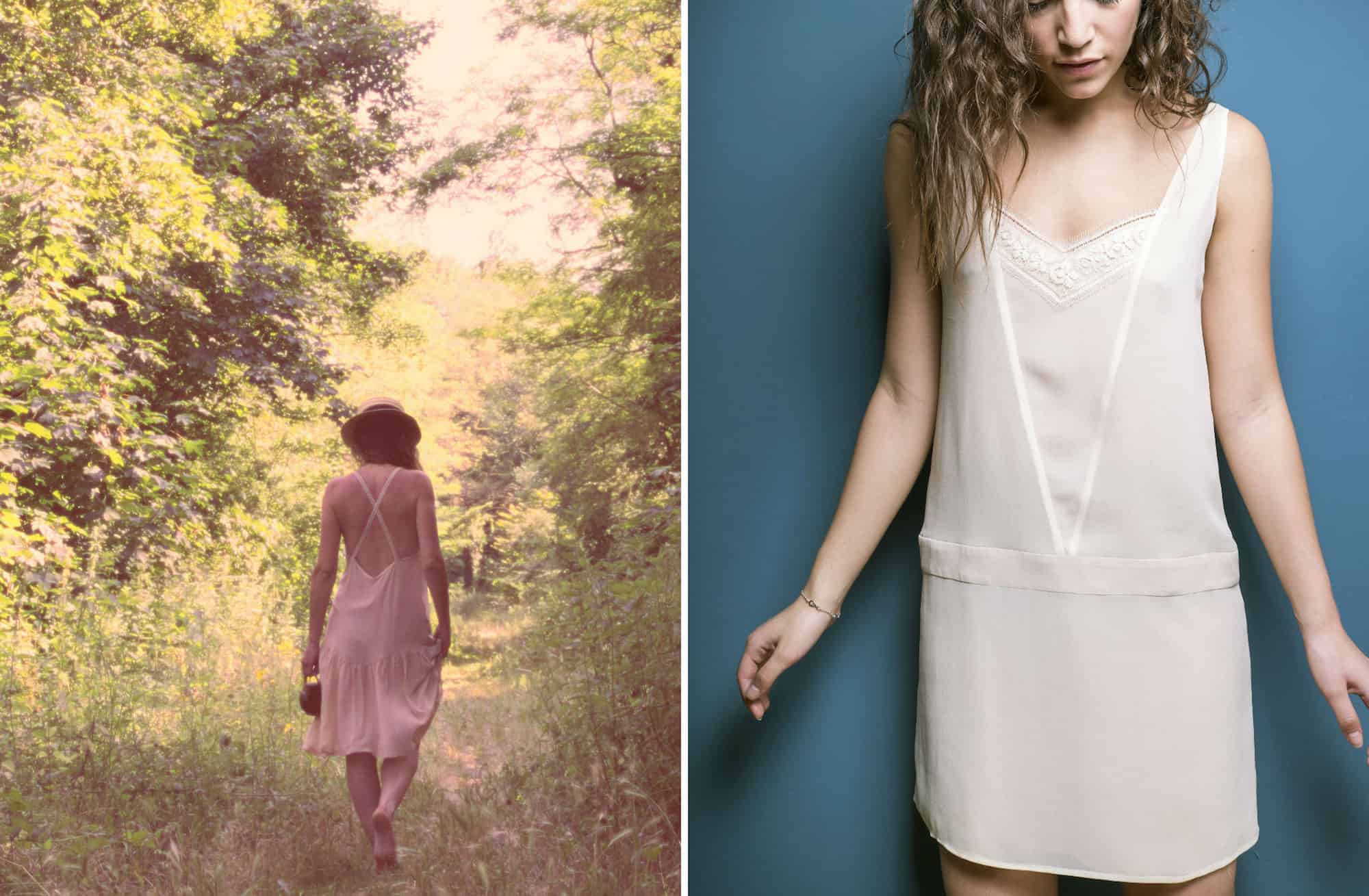
A few days later, I found myself standing outside an imposing red wooden door in the historical Marais neighborhood, with two girlfriends visiting from London. One secret code and two flights up a dark winding staircase later, the aforementioned Laurence was waiting to usher us cheerily into the warmth and light of her living room, where a handful of shoppers were casually browsing racks of stunningly chic dresses from an independent local designer, while festive music played tastefully in the background. The ambiance was more afternoon tea than it was holiday bazaar, a sharp contrast to the frenzied sample sales I’d had the opportunity to experience in New York City.
That very, very private sale was my introduction to the up-and-coming brand Les French Demoiselles, brainchild of young Marseillaise designer, Fanny Grosbois. Designed for “urban dreamers,” Les French Demoiselles’ aesthetic embodies the femininity and elegant simplicity that come to mind when one thinks about timeless French style. Although she lives in Paris, Fanny’s designs are heavily influenced by her Mediterranean roots, with collections that celebrate the heritage and craftsmanship of the south of France. Many pieces feature hand-woven lace from Calais, or traditional patterned fabrics from Provence.
But what is even more interesting about this promising new brand is its business ethic. Fanny is committed to producing clothing that is ethically sourced and sustainably produced, even if it means keeping the brand relatively small—something of an anomaly in today’s fast-fashion world. In addition to repurposing surplus material that might otherwise be destined for the trash bin, Les French Demoiselles also uses an innovative new fabric from Italy that is made from, of all things, recycled plastic bottles.
I had the opportunity sit down with Fanny and find out more about the brand, her favorite places to shop in Paris, and the elegant “Kate” dress I bought that chilly November afternoon, which still makes me feel like a mysterious femme fatale in a French perfume ad every time I put it on, and remains one of my indispensable go-to’s for very (very) special occasions.
Darlene Lim: Tell us a bit about your brand’s story. Where did the idea for Les French Demoiselles come from?
Fanny Grosbois: Shortly before my grandmother passed away, she gave me one of her beautiful lace-trimmed negligees from the 40s or 50s. That gave me the idea of creating a brand whose style embodied the same kind of femininity, with clothing made from delicate fabrics and handmade lace. I created Les French Demoiselles in late 2010 and my early collections take their cue from this idea: the designs are ethereal, feminine and fluid, a bit like lingerie. But the brand’s style has expanded and evolved since then.
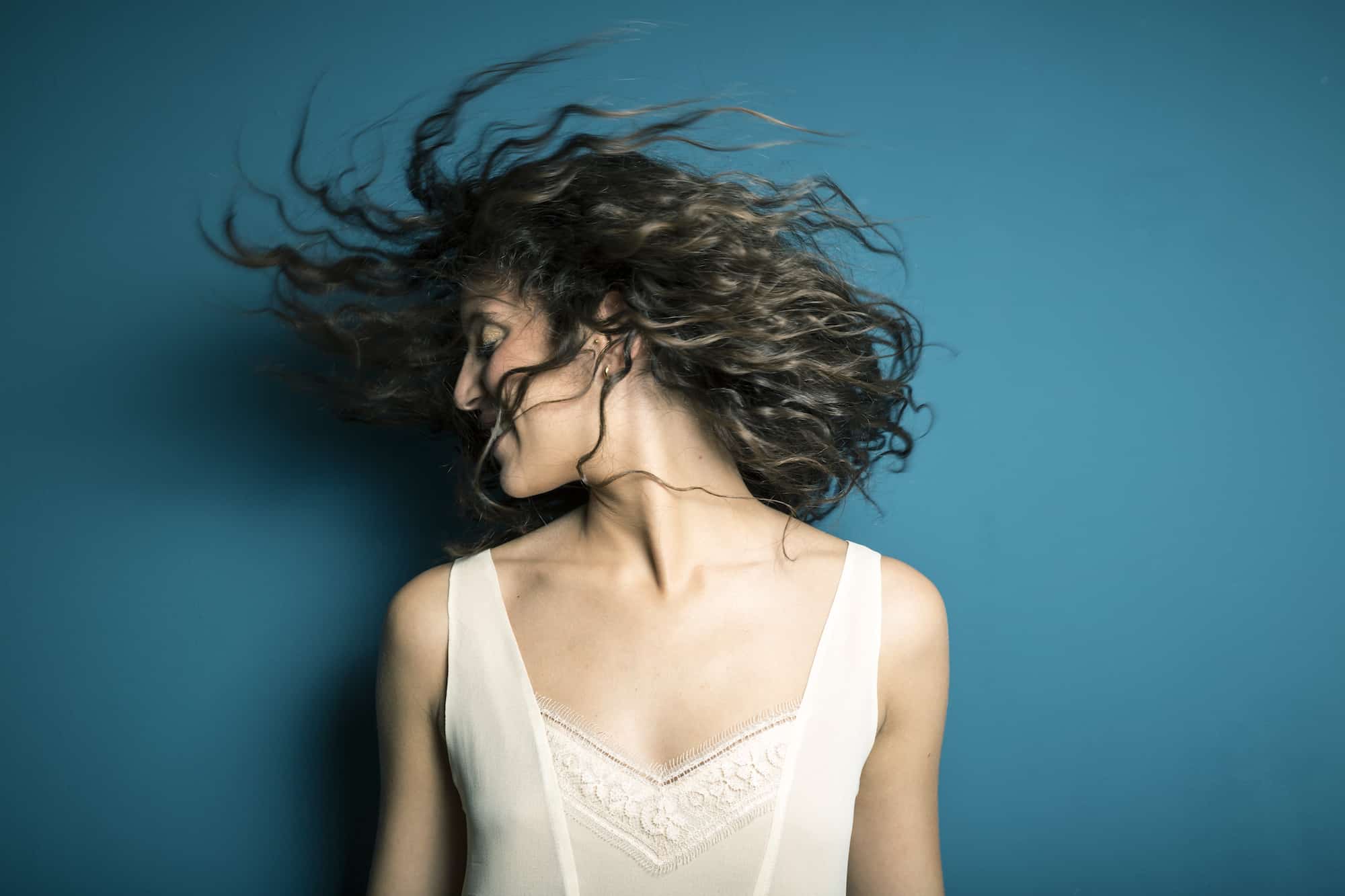
DL: What are your biggest design influences?
FG: I draw a lot of my inspiration from the Roaring Twenties and the 1930s. It was a fascinating time for women—they were breaking free of their corsets and other societal constraints that were holding them back. The tomboy look was in style and Coco Chanel was making her mark… You can see the era’s influence in my work; I like to use a lot of straight lines. Take the “Kate” dress, which is one of my favorites. It’s simple. It’s straight. But it adapts to different silhouettes and is flattering on more than one body type. I love how the lace V in the front ends just where the décolleté begins: a mere hint of suggestion that is very sexy. It’s one of my bestsellers.
DL: You identify your brand as mode éthique (“ethical fashion”). What does that mean to you?
FG: First, it’s about the materials you use. I use natural-fiber fabrics, which require less processing and are less toxic for the environment.
Second, it’s about how your materials are sourced. I adore silk, but it comes with a hefty price tag and can be hard to buy in small quantities, because suppliers often require a minimum order. I get mine from suppliers who salvage surplus fabric from big fashion houses. For me, it’s a bit like recycling, because I don’t initiate any silk production. I just make do with what I can find, which gives the fabric a second life instead of it ending up in the garbage.
I also use organic cotton from France, and organic cotton and linen from Portugal. I’ve chosen specifically to work with a Portuguese supplier who shares my values and uses sustainable production methods when it comes to dying, using and recycling water.
Finally, “ethical fashion” is also about how your clothing is made. People are always telling me, “If you produced in Morocco, you’d be more profitable.” But I don’t want to. Keeping the brand “Made in France” gives me a certain amount of visibility over how my clothing is made that I’m not willing to sacrifice. I can tell my customers where something was made, by whom and that they were treated fairly. And at the same time, I’m preserving my country’s heritage by supporting local craftsmanship.
DL: Tell us about the New Life fabric that you use in some of your collections.
FG: New Life is an innovative fabric that’s been on the market for about four or five years now. It resembles silk but it’s made from recycled plastic bottles. The transformation process is mechanical and not chemical, which uses less water and doesn’t pollute with chemical waste. It’s a revolutionary development in textile manufacturing; the fact that the material isn’t produced chemically means it’s not harmful to people or the environment. And as far as maintenance goes, it’s essentially recycled polyester, so ironing and washing are super easy.
DL: What should readers look out for if they want to shop for “ethical” French fashion?
FG: Read the label carefully. Some brands will use the French flag to make people think clothing is made in France, when actually, the label reads, “Designed in France, Made in Xxx”. You want to be careful, because some of this clothing is coming from regions with terrible working conditions and unfair wages, and often, it’s of substandard quality, despite a hefty price tag.
DL: What are your favourite places to shop in Paris?
FG: Filles de Saison (9 rue Oberkampf 75011 ) has a great selection of clothing and accessories from local French designers that embody Parisian style (including Les French Demoiselles!) and the Boutique Bonton (5 boulevard de Filles du Calvaire 75003) carries a really fun, eclectic mix of children’s clothing, toys, linens and home accessories.
I also love walking through Parisian department stores like Galeries Lafayette, Printemps and Le Bon Marché to get a feel for what’s trending at the moment.
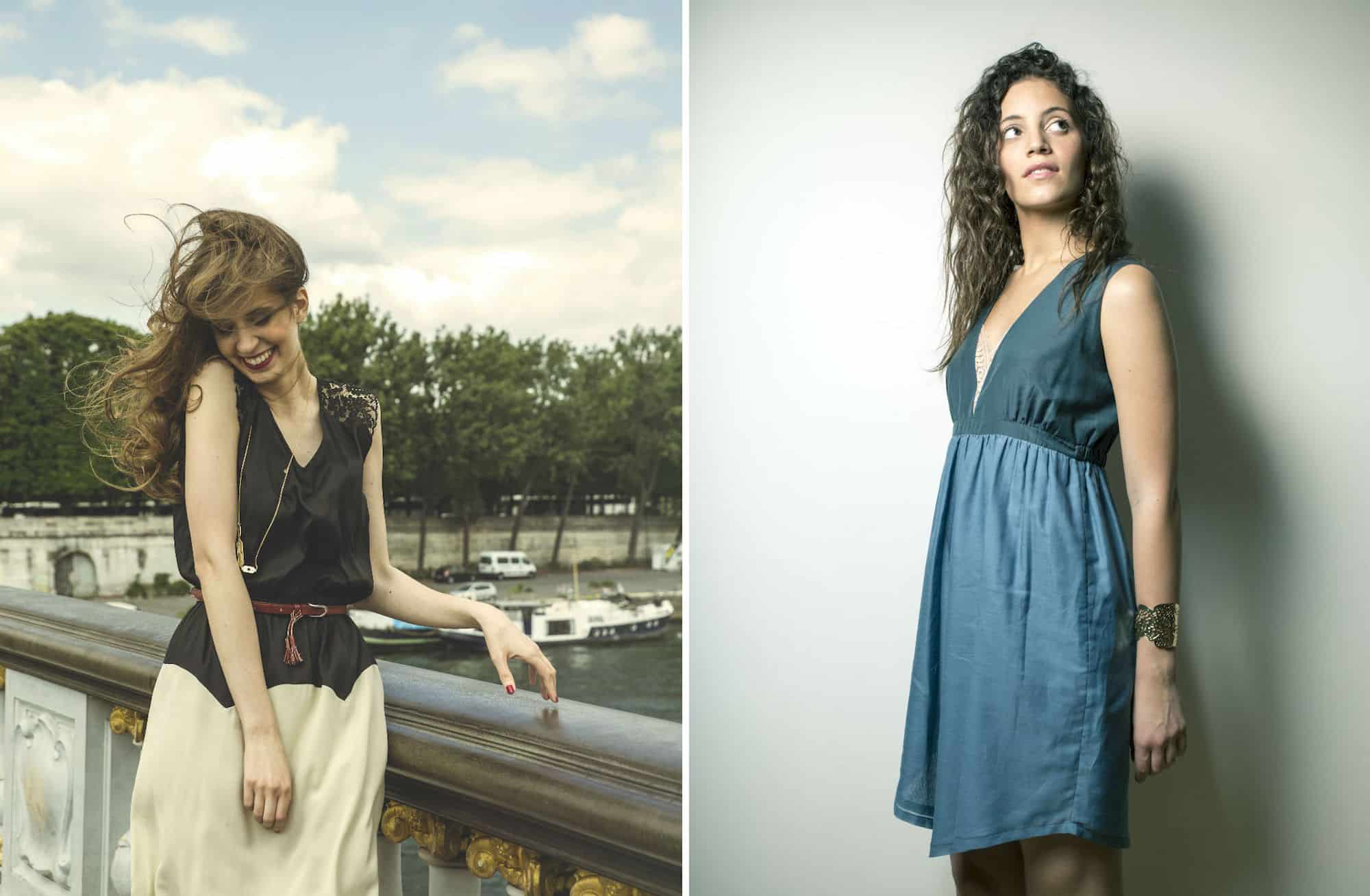
DL: What do you like about Parisian style?
FG: For me, Parisian style is first and foremost an attitude! Parisian women possess a certain nonchalance that goes beyond just what they’re wearing. It’s a “façon d’être” [a way of being] that’s reflected in how they walk, how they hold themselves, and how they interact with the people around them. They tend to be more reserved than American or British women, so there’s this impression of distance.
I have noticed that in recent years, the barriers are starting to come down a bit. Parisian women have become more daring when it comes to experimenting with style or wearing color, instead of always sticking to the same dark colors and classic cuts, which can sometimes be a bit austere. They’re also getting more adventurous when it comes to using unusual accessories or surprising details to make an outfit their own; they might still wear the same classic black outfit, but now they’ll brighten it up with a pair of fluorescent sneakers or brightly colored glasses! I think it’s great.
DL: Anything you don’t like about the city’s fashion sense?
FG: There can be a tendency towards uniformity, where everybody tries to follow the rules of Parisian style to the point that it almost becomes a cliché. If you try too hard to fit into a certain mold and look exactly like everybody else, you end up looking like nobody. You need to leave room for some individuality and spontaneity!
DL: What is your number one fashion tip?
FG: When you try something on, don’t be afraid to try on a different size to see if it works better. Often, when you tell a woman, “It’s a medium,” and she’s used to wearing a small, she’ll say, “Oh no, it doesn’t look good.” But focusing on size is too limiting. You have to feel good in what you’re wearing, whether it’s a oversized man’s sweater on a woman, or a large when you usually wear medium, because you’re going for a certain look.
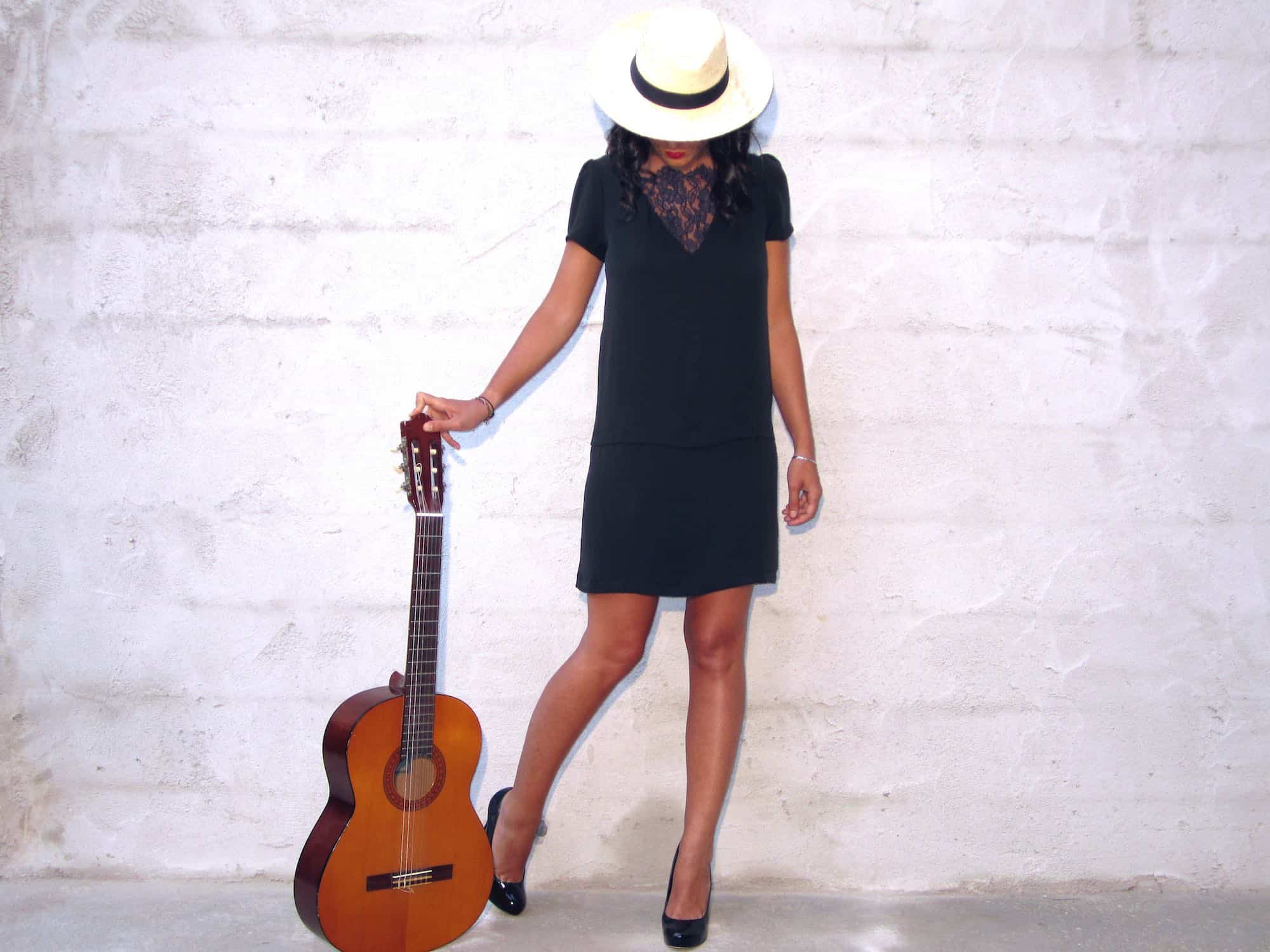
DL: What do you like most about your life in Paris?
FG: How easy it is to get around. You can get anywhere on the Paris metro! If you have time, though, the best way to get around is on foot. Paris is like an outdoor museum! The city is incredibly multicultural, so walking through all the different neighborhoods almost feels like you’re taking a trip around the world, just by stretching your legs!
DL: What’s in the cards for the future?
FG: I want to continue developing Les French Demoiselles, expand its range and maybe create an e-shop. I’d also like to continue developing partnerships with local artisans who work with lace and fabric, or even wood and ceramic, so that I can put the spotlight on their savoir faire and incorporate more of their work into my collections. Voilà.
Les French Demoiselles is sold in boutiques across France, by select online retailers and at the occasional very, very private apartment sale, if you happen to have the secret code.
Written by Darlene Lim for HiP Paris. All photos by Florie Berger and Malika Mokadem. Looking for a fabulous vacation rental in Paris, London, Provence, or Tuscany? Check out Haven In.
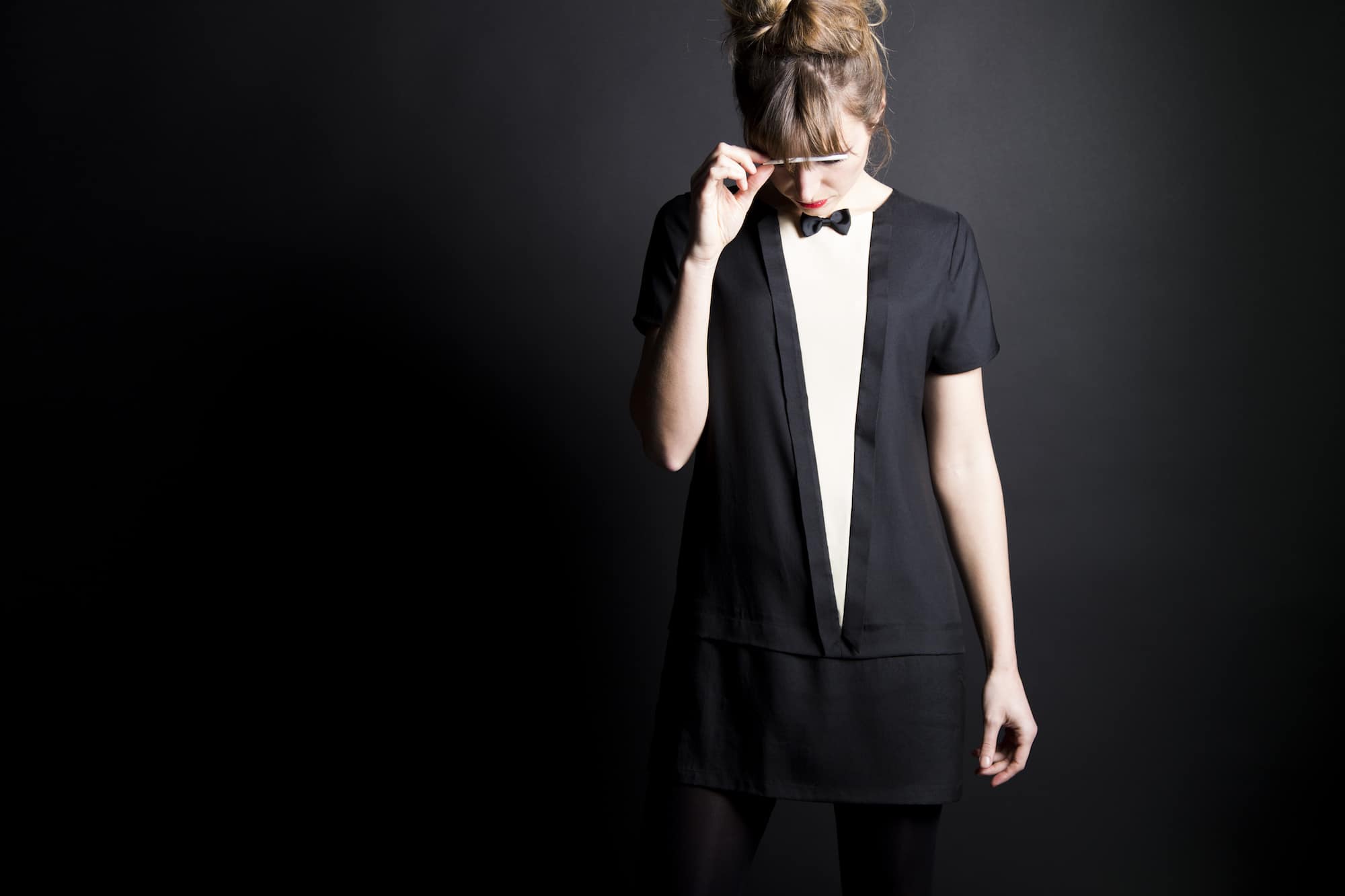

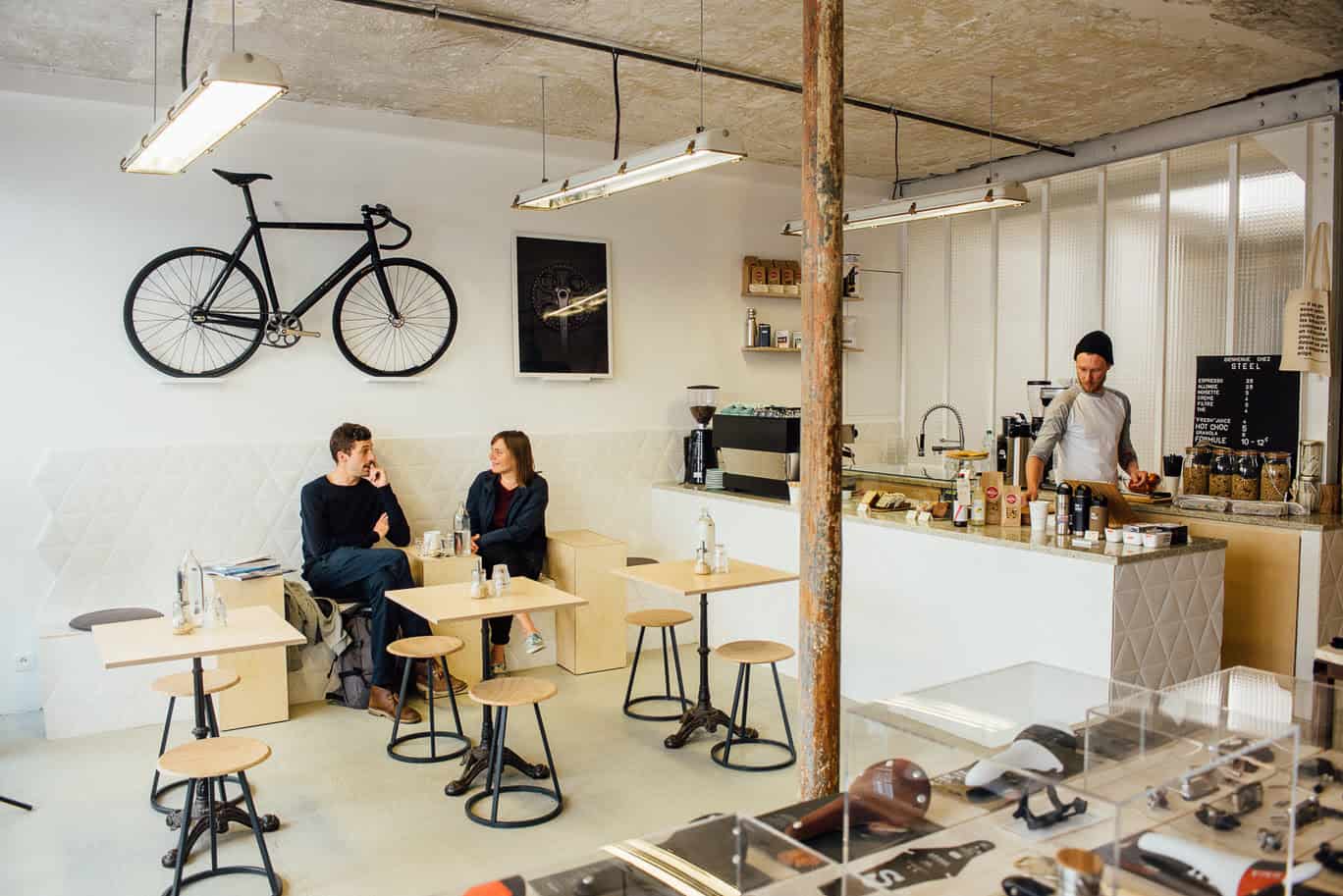

RELATED ARTICLES
What to Pack for Paris in Summer
by
Caroline Camp
Father’s Day Gifts for Francophiles
by
Zoe Adams
A Local’s Guide to the 3rd Arrondissement: Life in the Haut-Marais
by
Zoe Adams
Rue de Lévis: A Market Street in Paris’s 17th Arrondissement
by
Yvonne Hazelton
What to Wear in Paris in Spring
by
Caroline Camp
Valentine’s Day Gift Guide For Francophiles
by
Mia Baccei
Our Favorite Stinky French Cheese: What To Buy, Tips & Where To Shop
by
Casey Hatfield-Chiotti
French Inspired Gifts For College Girls
by
Dilyn Odoardi
The Ultimate Francophile Gift Guide
by
Maikka Piquemal
30 Books To Transport You To France
by
HiP Paris
Christmas 2024 at Galeries Lafayette – Get “LIT” this Holiday Season
by
Kathryn Kinley
Messy Nessy’s Paris Cabinet: Nostalgia and Offbeat Finds in the 5th Arrondissement
by
Sammy Royal
Christmas at Galeries Lafayette: The Most Dazzling Holiday Display in Paris
by
HiP Paris
Paris Chic/L.A. Cool: 15 Years of Clare V.
by
HiP Paris
French Creation & Savoir-Faire, Galeries Lafayette Paris Haussmann: 8 Discoveries
by
HiP Paris
Best French Chocolates for Easter
by
Ali Postma
French Fashion: Timeless, Chic and Elegant
by
Kasia Dietz
Happy New Year 2023! The Best of HiP Paris: Our Top 10 Posts in 2022
by
Maikka Piquemal
The French Foodie Gift Guide
by
Rachel Naismith
French-Inspired Gifts for Kids of All Ages
by
Amy Jacobson